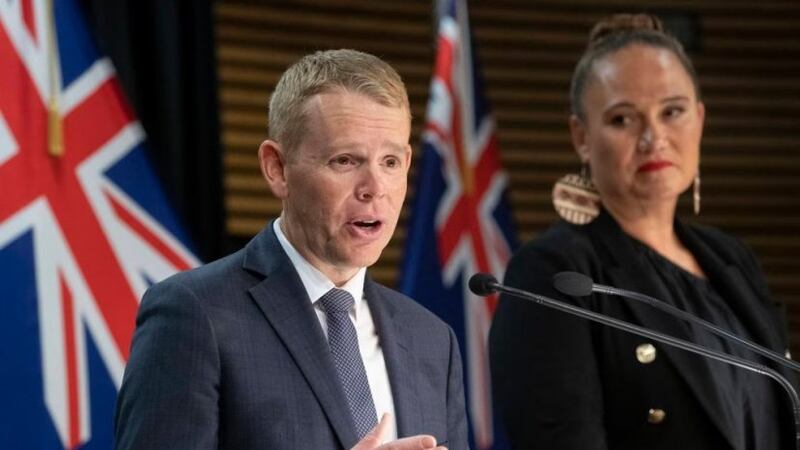The minimum wage will increase by $1.50 an hour from April 1, in line with inflation.
The new rate of $22.70 an hour comes as part of a bunch of new government policies following Prime Minister Chris Hipkins’ first full cabinet meeting this afternoon.
Rethinks on the government’s Three Waters reforms and a freeze on the merger of state-owned media entities TVNZ and RNZ were also announced in the government's push to tackle so-called 'bread and butter issues' ahead of October's general election.
Other policies put on ice include hate speech legislation, which will be sent to the Law Commission for more work; also gone is the compulsory biofuels mandate.
3 Waters
On Three Waters Hipkins said the need for reform was 'unquestionable' but said he wants the new minister of Local Government Kieran McAnulty to consult with the public and local government and report back on how to refine the reforms.
Hipkins declined to say if co-governance was on the chopping block when it came to the reforms.
Auckland’s floods had demonstrated why reform was crucial, but more work was needed and he expected that would take some weeks.
Minimum Wage
On the minimum wage Hipkins said he was concerned for those mainly on low incomes hit by the current cost of living crisis.
Fuel tax cuts extended last week benefited most whānau but he said those on the lowest incomes faced "impossible decisions" as a result of the current economic situation.
Treasury estimates predicted the wage increases would only have a 0.1 per cent effect on inflation, the prime minister argued, while saying he got that the rise would be tough for some small businesses.
The increase was unlikely to have a substantial effect on unemployment, the prime minister argued.
RNZ/ TVNZ merger
On the scrapping of the RNZ / TVNZ merger work, which TeAoMāori.news reported exclusively earlier in the day, Hipkins said Radio New Zealand would be given additional funding as would NZ On Air, to support public media content.
Hipkins declined to say if the work on the merger was a mistake but emphasised 'strong' public media was important.
Remaining funding for the merger would be directed to other government priorities.
Social insurance
Another knifed policy was the social insurance scheme, which would have supported workers with 80 percent of their salary for up to seven months if they lost their job through no fault of their own.
The issue was important, Hipkins said, but it would be addressed in the future when the economy improved.
Flood recovery
Hipkins praised the work of those restoring Tāmaki Makaurau after the floods. He promised $3 million of discretionary flood recovery payments, up to $1 million to focus on business continuity and resilience, and an additional $1 million for mental health support.
He was aware more bad weather was incoming and noted the state of emergency remained in place.
Hipkins swung back at the Greens who earlier today criticised government support payments for the floods; 22,000 people had benefited from Civil Defence payments already, Hipkins said.
Biofuels
The biofuels mandate which would have obliged suppliers of petrol or diesel, to supply a minimum proportion of biofuels had to go because of soaring fuel costs related to geopolitics and Russia's invasion of Ukraine.
Hate speech reforms
Justice Minister Kiritapu Allan had already announced scaling back of the new hate speech reforms last year. Today, however, Hipkins said the controversial reforms, which were frequently a target from the opposition benches, were going back to the Law Commission for review.
"Anyone who's read the royal commission report following March 15 would have to acknowledge that there are some very legitimate issues that have been raised but I don't want to have them mired in a debate going nowhere, which frankly is where the debate has been going," Hipkins said.
"This decision allows it [the commission] the opportunity to consider a difficult and highly contested area of the law in its totality. The Law Commission's got a good track record on developing guidance on difficult issues and often in the past helped to generate cross-party support for those issues and that's what we hope to achieve here."
Ministers would continue looking at their work programme to see what other programmes might be deemed unnecessary in the lead-up to the election, Hipkins said.
More to come...


